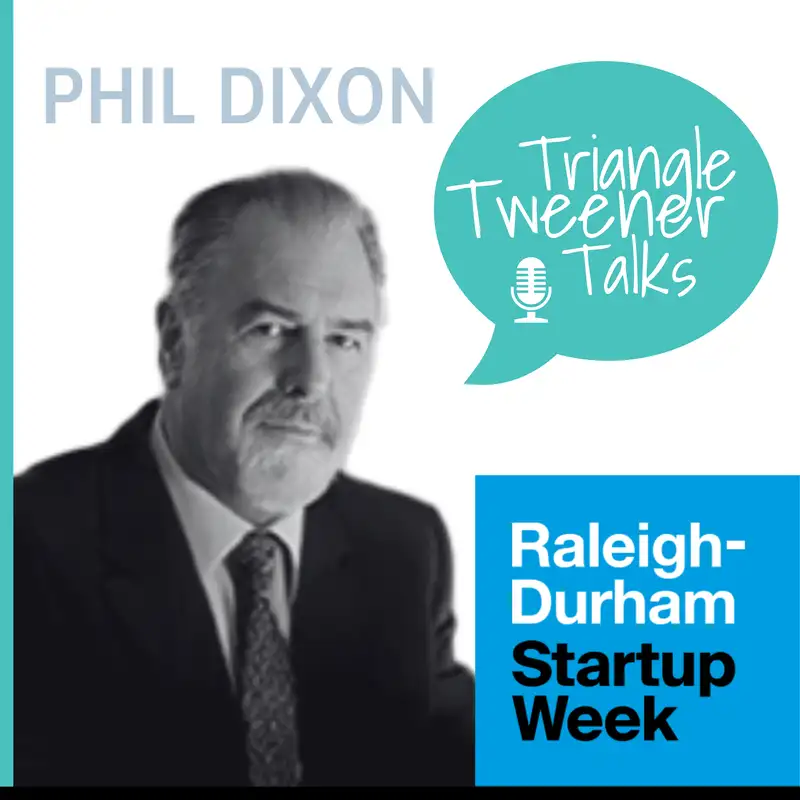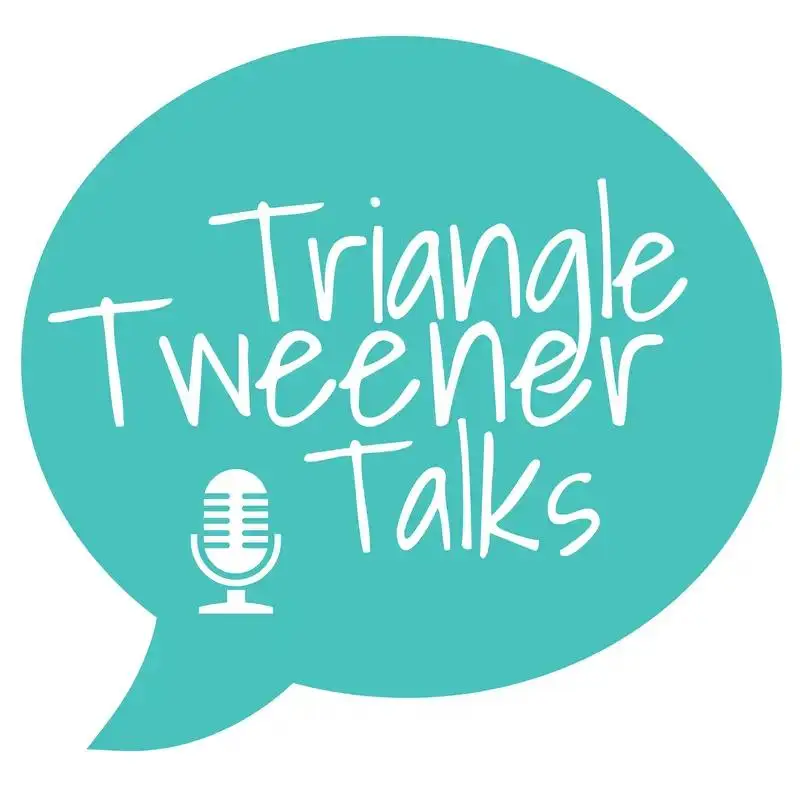Why Brain Science is Critical for Entrepreneurs, with Phil Dixon (Raleigh Durham Startup Week Keynote)
00:00:03 - Announcer
Welcome to Triangle tweenertalks, a weekly podcast by Builders for Builders, where we explore the startup journey from the idea to the exit and all the lessons in between, with an exclusive focus on founders from the Triangle region of North Carolina.
00:00:22 - Becca Ross
Welcome back to Tweener Talks. My name is Rebecca Ross and I work with Scott Wingo at the Triangle Tweener Fund. Today's short episode is all about getting you hyped up for Raleigh Durham Startup Week. If you're an entrepreneur, a leader, or just someone fascinated in how the brain works, you're in for a treat. Joining me today is Phil Dixon, CEO of the Oxford Brain Institute and a leading expert in how neuroscience shapes leadership, decision making and team dynamics. He's worked with companies like Apple, Google and Facebook and he's bringing all of that expertise to Raleigh Durham Startup Week as a keynote speaker. Hi, Phil, and thank you for speaking with us today.
00:00:57 - Phil Dixon
Pleasure to be here. How can I help?
00:00:59 - Becca Ross
So you've spent years studying the brain and helping top execs organize their leadership styles. Why is understanding brain science so important for entrepreneurs and founders?
00:01:10 - Phil Dixon
Well, first of all, it's important for everybody. If you think about it, every action we take, whether it's deciding what bottle of wine to open for dinner or where to go on vacation, or how to integrate AI into the next product, it all starts with something that starts right up here. Nothing else happens. There is no more. There's nothing else. Every time we make a decision, action, whatever it might be, thought or feeling, it's come from something that started in our brains. So, you know, it's a pretty important dynamic for everybody in the world. So, second thing I'd say is you mentioned about the fact that I spent a lot of time in leadership. Yes, I have. I got exposed to the neuroscience of the brain about 15 years ago and realized that a lot of what we're talking about in the way of leadership is basically based on old ideas, old science ideas, old ideas about how the brain works. And it's time for, I think, people to get updated into what's going on. And third, we've actually, in the last 20 years or so, been able to get to the point where we've started to understand what makes successful entrepreneurs and how their brains either help their process of developing this startup or get in the way. Seems to me that both entrepreneurs and founders and funders would like to know some of that characteristic.
00:02:47 - Becca Ross
It would definitely be interesting. Without giving too much away, what is one game changing insight that you'll be speaking about at Raleigh Durham Startup Week?
00:02:56 - Phil Dixon
Well, I may restrict it to just.
00:02:58 - Becca Ross
One or you can talk about as many as you want. All right, it's up to you.
00:03:03 - Phil Dixon
Thanks. There's a lot. As I started to think about this conversation, I realized there's probably a dozen off the top of my head. So I'm just going to go through a few of them to be sort of illustrative.
00:03:15 - Becca Ross
Are you going to give away all your secrets before.
00:03:17 - Phil Dixon
Hey, I've got so many secrets that I'll never be able to give them all away. So the first is the incredible importance of our non conscious brain. The fact that we were driven by fear and reward has been known for, I think, many, many years. But what's the impact of that on them? Day to day, hour to hour, even minute by minute basis? Those impacts have drastic, drastic repercussions. And I think for the average person, but the average leader or entrepreneur, if they can understand what those impacts are, I think it could be incredible. It has been the 15 years or so I've been working with this so far. People have walked away pretty much in astonishment sometimes. So what about. Here's another takeaway. What's the optimum time for you to make decisions? Have you ever explored that? I mean, that's a question for you, Rebecca, as well. What's the best time for you to address thorny issues versus relaxing? And we can actually start to predict that now with the brain. What about some of the brain processes that actually operate in literally every 1/5 of a second? So, for example, the brain uses the same circuitry to detect a threat, a physical threat, than it does an emotional threat. So therefore, if you're an entrepreneur and you go into your group of people and you go, I've come up with this great idea and everyone disses it. That's an emotional threat to you. And that's the equivalent of being slapped around the face inside the brain. The brain gives you an internal message that says, close down. Don't expose yourself. And it can take us all anywhere between two and five hours to recover from that process. So those are some of the things that we have started to learn about the brain. Let me add another one. Every word counts. Now you in your business will know this, but so for example, when you say to somebody, don't worry, what does their brain hear? It hears the word worry. That's a far more emotive word than don't. So what about the phrase that's going around all up and down Silicon Valley the last few years? Fail fast. What is the brain Here, fail. And you can go to this again and again and again. It's been shown that in a court of law, if an attorney asks, how fast was the car going when it crashed into the other car? You get a certain response. If the attorney says how far was it going when it smashed into the other car? 20 miles an hour on average. Response difference to the same thing. So everything that's going on in the brain, what I'm trying to illustrate here is that everything that's going on in the brain is impactful, whether it's at the larger level or the conceptual level, or word by word. And as a startup, if I'm an entrepreneur and I start to understand that, I can understand how I'm having an impact on both myself and other people. And what about when my organization grows? Assuming it does, which is the purpose of most startups, my brain is probably not going to change and grow with it. So therefore, where is it going to be optimal for me to use my brain to help and where it's going to be best to step back? Other than that, I have nothing to say.
00:06:57 - Becca Ross
That's really interesting. Just changing some verbiage can recreate your entire mindset over some matters. Yeah, definitely impactful for entrepreneurship and founders.
00:07:08 - Phil Dixon
Even a single word? Absolutely, yeah.
00:07:12 - Becca Ross
For someone on the fence about attending RDSW or coming to your talk, why should they make it a priority?
00:07:18 - Phil Dixon
Well, it's a great question and I would say all the reasons we've just covered, but I think there's a couple of other things. I sort of alluded to this, but most the leadership theories, most of the leadership assessments, etc. Are all based on very, very old science that are out there. I won't go into any names, but there are many of the common practice leadership assessments that are based on 50 year old science. They don't haven't included anything that's been updated the last 20 years. That's number one. Number two, is that one of the things I've discovered in working with people and helping them understand their brains is it's not just restricted to your work life. When you start to understand your brain, your home life gets improved as well.
00:08:12 - Becca Ross
It really is that whole mindset.
00:08:14 - Phil Dixon
Completely, yeah. There's nothing. Don't forget, it doesn't matter where you are or what wakeful state you're in, it all starts right up here. Same brain, Same brain.
00:08:27 - Becca Ross
This is amazing. So if people wanted to learn more before the talk, where can they find you?
00:08:33 - Phil Dixon
Well, assuming they don't want to visit me at home, then probably best is on email. That's the one I tend to use more than anything else. And that's Phil Dixon 1 p h I l d I x o n numeric 1@macmac.com awesome.
00:08:52 - Becca Ross
For everyone listening, make sure to check out Phil's Keynote Speak speech Keynote speech at Raleigh Durham Startup Week. He's the keynote speaker on April 10th at 1pm in Raleigh. Thank you so much Phil.
00:09:05 - Phil Dixon
Oh, thank you.
00:09:10 - Announcer
For more tweener content, check out the triangle tweenertime substack@tweener.substack.com for more tweener content, check out tweenertimes.com thanks for listening and we'll see you again soon on Triangle tweenertalks.

